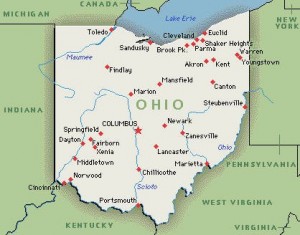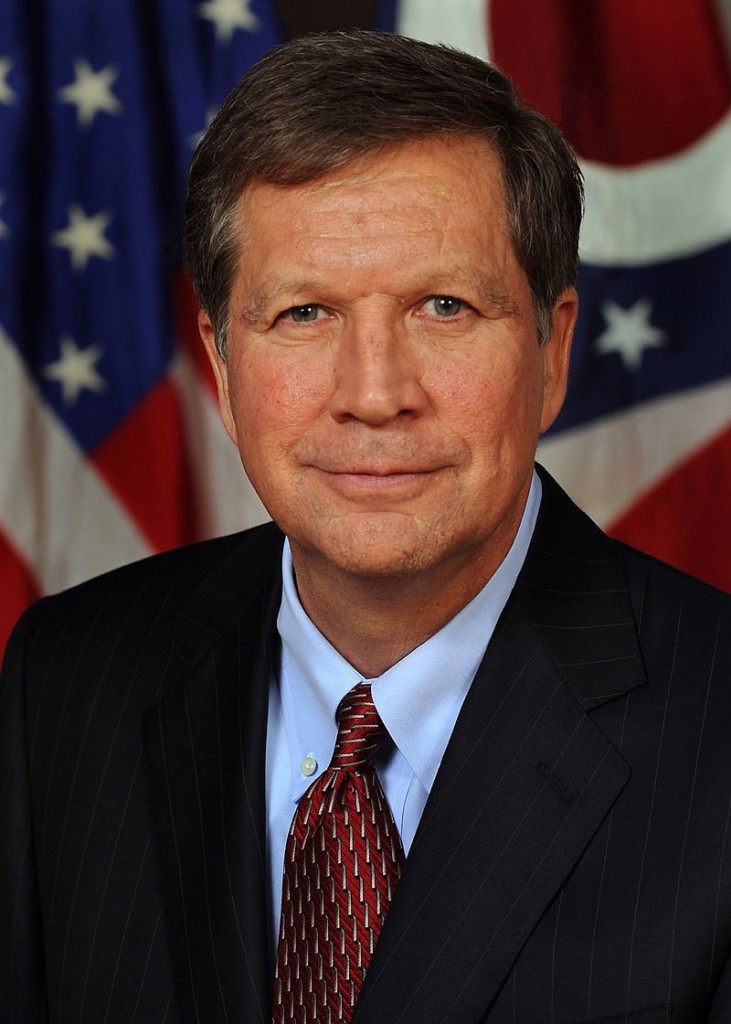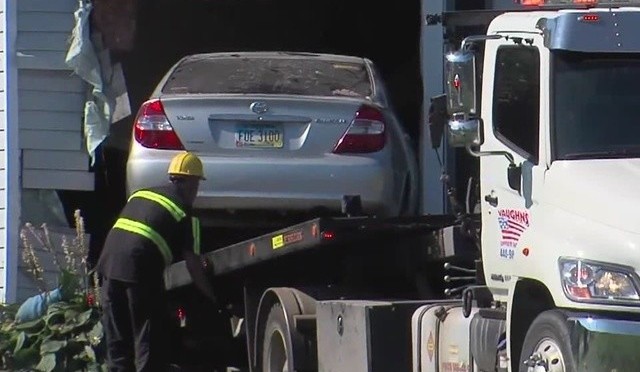Ohioans Against Marijuana Monopolies Rise to Fight Big Pot, More Pot
Why was a driver so impaired that she drove right into a house, killing the resident? Weed was found in the her car after the crash. Now two children live without their mother and the driver escaped harm. This past week, it was found that the driver tested way above the legal limit for pot. It happened near Lorain, Ohio, on July 28. If ResponsibleOhio PAC succeeds with its marijuana ballot, Ohioans can expect more accidents and absurdities such as this one.
Grass roots groups have organized to defeat marijuana legalization in Ohio under a common banner, Ohioans Against Marijuana Monopolies. Their campaign is called No on Issue 3.
Ohioans are fighting against a private organization made up of syndicates of wealthy investors who would acquire the exclusive rights to grow, manufacture and sell marijuana to marijuana stores in Ohio The investors propose to acquire these rights by amending the Ohio Constitution through a ballot vote on November 3, 2015.
The anti-pot groups would love to have the money and the funding of the marijuana Political Action Committees with their donors. The marijuana industry and lobbyists like to say that anti-pot groups are funded by the pharmaceutical and alcohol industries, a theory that couldn’t be further than the truth. We’re just normal citizens who wish to protect children and communities. Ohioans Against Marijuana Monopolies will need to raise money quickly. Here’s the place to donate to the groups working against Issue 3 in Ohio.
The Ohio Marijuana Monopoly envisioned by the investor-run group, known as ResponsibleOhio PAC, began asking for $4 million from individuals, promising them lavish profits. Any marijuana bought by the retail stores would have to be purchased from one of 10 grow sites. They even locked into the amendment their own sweetheart tax rates. The investors suggested there would be about 1000 stores (nearly 3x the number of state liquor stores). Both raw marijuana and/or edibles such as cookies, brownies and candies could be sold at the stores, promoted as opportunities for small business owners. The solicitors suggested that half their investment would go to pay for the ballot, and half to buy the cultivation properties. The group was raising $28 million for this strategic plan.
The names of many the investors are hidden by corporate shields that conceal their identities. Yet, if Issue 3 is approved, these investors would own the exclusive option to grow and cultivate all marijuana at the 10 designated sites. Corporations representing the investors have purchased the sites. Ohio has no “medical” marijuana, so the group is sidestepping the usual approach the marijuana industry has taken to legitimize the use of marijuana in their state-by-state legalization effort.
Big Money Backs Legalization Efforts
Back in 1998, Gen. Barry McCaffrey, former Drug Czar, testifying before the Senate Committee on the Judiciary, warned
“There is a carefully camouflaged, exorbitantly funded, well-heeled elitist group whose ultimate goal is legalize drug use in the United States.” The dreams of this group are coming to pass, as the West Coast of Weed is a reality which wants to spread throughout USA.
Cleveland insurance executive Peter Lewis and George Soros, founder of Soros Fund Management, donated millions upon millions of dollars aimed at changing drug laws across the nation over the last 20 years. Soros’s baby, the Drug Policy Alliance (with its Drug Policy Action PAC) is committed to goal of legalizing all drugs. The Marijuana Policy Project (MPP) founded in 1995 has become a political powerhouse with its robust fundraising and effective campaign messaging. It has infiltrated many state legislatures and the halls of Congress. Billionaire Peter Lewis, the head of Progressive Insurance, funded the group.
Peter Lewis was an Ohio resident until he died in late 2013. Before he died, Lewis also made a major donation to the Brookings Institution, in order to fund academic scholarship supportive of legalizing marijuana. He also donated of money to the 2014 Measure 91, to legalize marijuana in Oregon. His children added more money to the campaign after his death, which was in addition to the Soros money. In 2012, marijuana Oregon’s legalization ballot failed, because MPP and Soros’s DPA had decided not to fund it, giving money to the winning ballots in Washington and Colorado.

Who’s Against Marijuana Monopolies and Pot Legalization?
Ohio Governor John Kasich is against marijuana legalization, along with the Treasurer, Auditor, Secretary of State, Attorney General and House Speaker. Leading newspaper editorial boards and most statewide elected official oppose the plan. Many members of both political parties are upset. Deep opposition to Issue 3 arose even before it was certified to the ballot in mid-August.
Children’s health advocates, doctors, hospitals, civic leaders, parents, educators, farmers, other business people, chambers of commerce, law enforcement personnel, addiction counselors and faith leaders are very upset about the potential for increased drug use and abuse that comes with marijuana legalization.
Issue 3 also allows every Ohio adult to grow pot at home and possess more than half a pound of marijuana for recreational use at all times. A half of pound of marijuana is equivalent to 500 marijuana joints. The creation of a monopoly and large amount allowed at one time are two reasons why so many groups have begun to speak out against this proposed ballot initiative.

